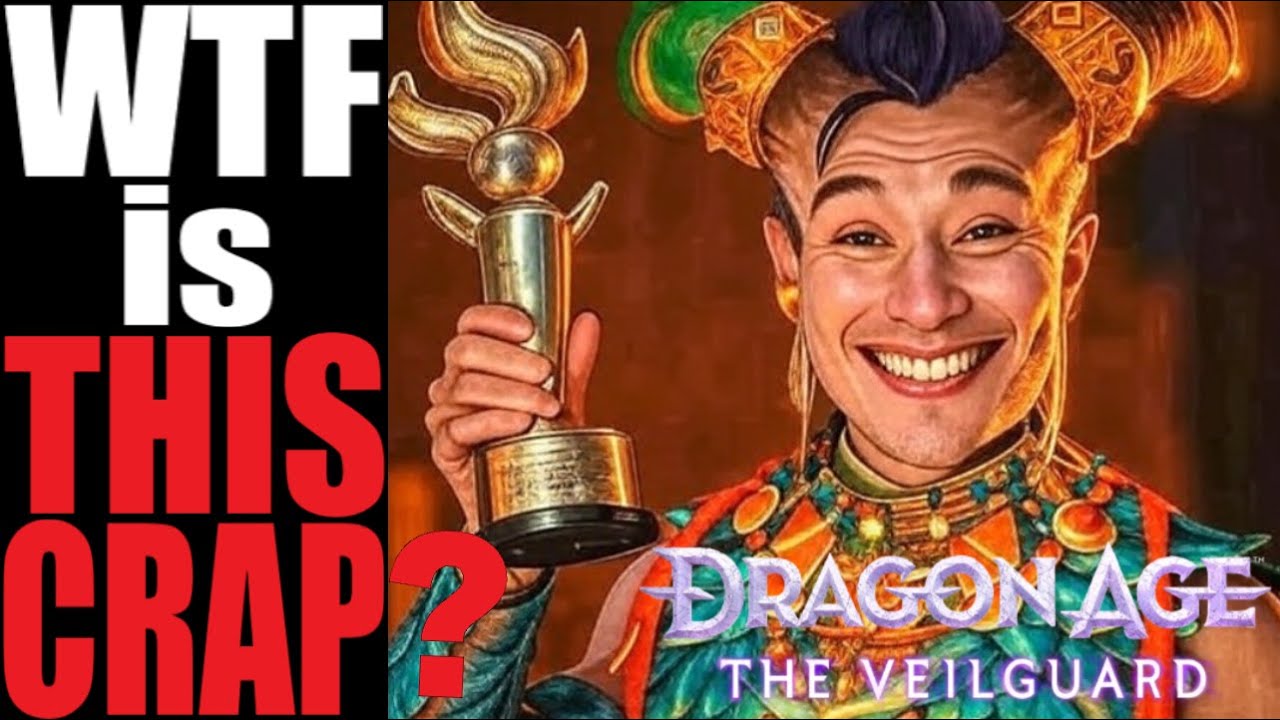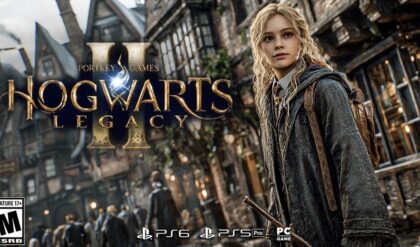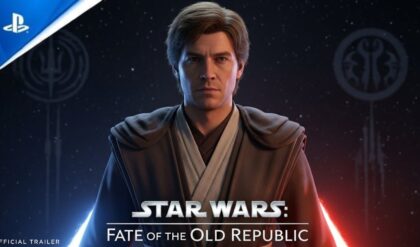Wait, WHAT?! Dragon Age: The Veilguard Just Snagged Game of the Year?!
You won’t believe this—despite all the drama, BioWare’s latest RPG just took home a major award! Love it or hate it, this game’s got people talking. Is it a masterpiece or a total miss? 🤔

The Controversy and Triumph of Dragon Age: The Veilguard’s Game of the Year Win
Introduction
In a twist that has set the gaming community ablaze, Dragon Age: The Veilguard was crowned Game of the Year at the Gayming Awards 2025, alongside winning Best LGBTQ+ Character for its protagonist, Rook, and Best LGBTQ+ Voice Actor for Erika Ishii’s portrayal of Rook. For some, this victory is a heartwarming recognition of BioWare’s bold, inclusive storytelling. For others, it’s a lightning rod for controversy, sparking heated debates across platforms like Reddit and X. With a fanbase divided over changes to the Dragon Age franchise’s lore, gameplay, and narrative style, the award has reignited discussions about what makes a game award-worthy. This article dives into the triumph, the backlash, and the broader implications of Veilguard’s surprising win, exploring why this moment has become a cultural flashpoint in gaming.
The Game: Dragon Age: The Veilguard
Released on October 31, 2024, Dragon Age: The Veilguard is the fourth major installment in BioWare’s beloved fantasy RPG series, following Dragon Age: Inquisition (2014). Set in the vibrant world of Thedas, the game follows Rook, a customizable protagonist tasked with stopping the elven god Solas and two newly freed, amoral deities from destroying the world. Unlike its predecessors, Veilguard shifts away from open-world exploration to discrete levels with fast travel and introduces a combo-based combat system, emphasizing action over tactical RPG roots. The game also prioritizes inclusivity, allowing players to choose Rook’s gender identity and sexual orientation, and featuring non-binary characters like Taash.
Despite critical praise—scoring an 82 on Metacritic and “mostly positive” user reviews on Steam—the game faced significant backlash. Some fans criticized its departure from traditional Dragon Age elements, calling the writing “dehumanized” and the lore changes “disrespectful.” Others targeted its inclusive themes, leading to review bombing campaigns on platforms like Metacritic, where detractors labeled it “woke.” Commercially, Veilguard engaged 1.5 million players in its first quarter, falling short of Electronic Arts’ (EA) expectations by nearly 50%.
The Gayming Awards 2025: A Platform for Inclusivity
The Gayming Awards, founded in 2021 by Robin Gray of Gayming Magazine, celebrate games with strong LGBTQ+ themes, characters, and developers. Held on July 8, 2025, at The Abbey in West Hollywood and streamed on World of Wonder’s WOW Presents Plus, the fifth annual ceremony raised funds for the Gayming Foundation, a charity promoting inclusivity in gaming. Dragon Age: The Veilguard dominated the 2025 awards, securing three major accolades: Game of the Year, Best LGBTQ+ Character, and Best LGBTQ+ Voice Actor. Other winners included The Last of Us Part 2: Remastered for the Readers’ Award and Code Coven for the Industry Diversity Award.
The awards highlighted Veilguard’s inclusive storytelling, particularly its customizable protagonist and diverse cast. Robin Gray praised the winners as “a wonderfully diverse group of people, all of whom are working to make our industry better in their own way,” emphasizing the importance of representation in gaming. However, the win sparked polarized reactions, with some celebrating the recognition of inclusivity and others dismissing the awards as niche or biased.
The Controversy: Why the Backlash?
The Veilguard Game of the Year win has been a lightning rod for criticism, as evidenced by posts on X and Reddit. Detractors argue the game doesn’t deserve the accolade due to its perceived flaws and commercial underperformance. A Reddit thread on the Asmongold subreddit captured the sentiment bluntly: “Literally got an award for being the gayest game of the year…..sounds about right.” Another user called it “a joke of a game,” citing its departure from Dragon Age’s tactical RPG roots and its focus on inclusivity as reasons for its failure.
Several factors fuel the controversy:
Changes to Franchise Identity: Fans of earlier Dragon Age titles, particularly Origins and Inquisition, lament Veilguard’s shift to action-oriented gameplay and streamlined companion interactions. One X post noted, “In older titles you could piss off your companions, here? No. Everyone is nice and conversations have no real impact.” This departure alienated some long-time fans who felt the series lost its depth.
LGBTQ+ Themes and “Woke” Criticism: The game’s inclusive elements, including trans and non-binary characters, drew ire from a vocal minority. Review bombing targeted these aspects, with some users on Reddit claiming the story was “destroyed by woke bullshit.” This backlash mirrors broader cultural debates about diversity in media, with Veilguard becoming a scapegoat for anti-“woke” sentiment.
Commercial and Critical Context: Despite positive reviews, Veilguard’s 1.5 million players fell short of EA’s expectations, and its absence from major categories at The Game Awards 2024 (except for Innovation in Accessibility) was seen as a snub. Critics argued that other 2024 RPGs, like Final Fantasy 7 Rebirth or Metaphor: ReFantazio, were more deserving of Game of the Year.
Award Credibility: Some dismissed the Gayming Awards as a niche event, with one Reddit user stating, “Anyone can make up any award and give it to whoever they want, it’s as meaningless as the next ‘award’.” This perception downplays the awards’ focus on inclusivity, framing Veilguard’s win as less prestigious than mainstream accolades like The Game Awards.
The Case for Veilguard’s Win
Despite the backlash, Veilguard’s Game of the Year win has strong defenders. The game’s inclusive storytelling resonates with players who value representation. The ability to play as a trans or non-binary Rook, coupled with unique dialogue options, sets it apart in a genre often criticized for lacking diversity. Erika Ishii’s voice acting, praised for its emotional depth, further elevates Rook as a standout character.
Critically, Veilguard earned accolades beyond the Gayming Awards. It won Outstanding Video Game at the 36th GLAAD Media Awards, and its tie-in podcast, Dragon Age: Vows & Vengeance, secured Best Audio/Podcast at the Tribeca Festival. Time Magazine named it Game of the Year 2024, ranking it above Astro Bot and Final Fantasy 7 Rebirth, citing its immersive storytelling and visuals. GamesRadar+ also awarded it Best RPG of 2024, highlighting its polished production and narrative ambition.
Supporters argue that the Gayming Awards recognize qualities overlooked by mainstream outlets. As one fan on X noted, “The developers brought their A-game this time, with immersive storytelling, dynamic character arcs, and visuals that breathe life into the Dragon Age world.” For the LGBTQ+ community, Veilguard’s win is a validation of representation in gaming, a medium where such themes are often marginalized.
The Bigger Picture: Awards, Subjectivity, and Industry Trends
The Veilguard controversy underscores the subjective nature of game awards. As one Reddit user pointed out, “Every assessment is based entirely on subjective opinion. There’s very little science to any of this.” The Gayming Awards prioritize inclusivity, while The Game Awards favor broader appeal and commercial success. This divergence explains why Veilguard triumphed at one but was snubbed at the other.
The backlash also reflects broader industry challenges. BioWare faced significant hurdles during Veilguard’s decade-long development, including multiple reboots and a shift from a planned live-service model to a single-player experience. Post-launch, the studio endured layoffs, with key staff like director Corinne Busche and writer Trick Weekes leaving or being reassigned. EA’s silence on sales figures and the game’s lack of planned DLC suggest a uncertain future for the franchise.
Yet, the win highlights gaming’s evolving landscape. The Gayming Awards’ focus on diversity aligns with growing demand for inclusive narratives, as seen in games like The Last of Us Part 2: Remastered and Baldur’s Gate 3. As Robin Gray noted, the awards aim to “uplift and empower LGBTQ+ games workers and fans,” signaling a shift toward recognizing marginalized voices.
Navigating the Divide: Can Fans Move Forward?
The polarized reactions to Veilguard’s win reveal a fractured fanbase. Supporters see it as a bold evolution of Dragon Age, while critics view it as a betrayal of the series’ roots. Bridging this divide requires acknowledging both perspectives. BioWare’s risk-taking—whether in gameplay or inclusivity—has sparked meaningful debate, even if it alienated some fans. As one X post put it, “Love it or hate it, that’s the kinda impact GOTY should have, right?”
For the industry, Veilguard’s win raises questions about how awards shape perceptions of quality. Should accolades prioritize innovation, cultural impact, or broad appeal? The Gayming Awards’ focus on inclusivity challenges mainstream norms, but the backlash suggests resistance to change remains strong.
Conclusion
Dragon Age: The Veilguard’s Game of the Year win at the Gayming Awards 2025 is both a triumph and a lightning rod. It celebrates BioWare’s commitment to inclusivity and storytelling, yet it underscores deep divisions within the gaming community. The controversy reflects broader tensions—between tradition and innovation, inclusivity and backlash, subjective taste and objective merit. While some dismiss the win as niche, others see it as a step toward a more diverse gaming future. As the dust settles, one thing is clear: Veilguard has left an indelible mark, for better or worse. Want to weigh in on the debate? Check out the full story and join the conversation.





